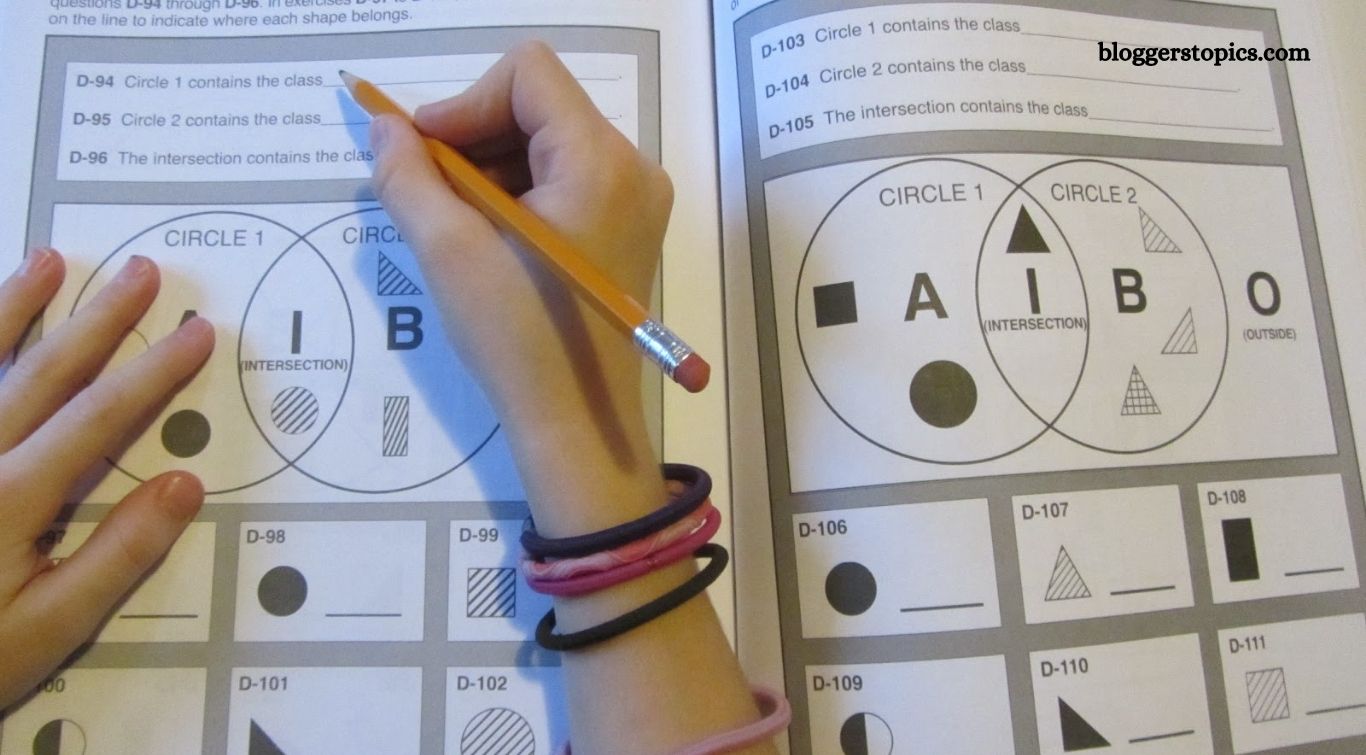In the realm of early childhood education, Pre-K workbooks play a pivotal role in nurturing young learners. Thoughtfully designed to combine play with purpose, these educational tools introduce preschoolers to structured learning in an engaging and age-appropriate way. More than just practice sheets, high-quality Pre-K workbooks are foundational in developing critical thinking skills—abilities that empower children to reason, solve problems, and make thoughtful decisions as they grow.
By encouraging exploration, observation, and logical thinking, these resources support cognitive growth during a crucial developmental window. In this article, we’ll delve into the value of Pre-K workbooks, offering insights into their role in early education, tips for selecting the most effective options, and the long-term benefits they provide for young minds.
The Importance of Pre-Kindergarten Workbooks
Pre-kindergarten workbooks serve as more than just activity pages—they are a foundational tool in a child’s early educational journey. Designed to support both cognitive and social development, these workbooks play a crucial role in shaping young minds by:
- Encouraging hands-on learning that sparks curiosity and exploration.
- Developing critical thinking through age-appropriate challenges that promote reasoning and problem-solving.
- Establishing essential skills in literacy, math, and science that lay the groundwork for academic achievement.
- Strengthening fine motor abilities through engaging tasks like tracing, coloring, and cutting.
Extensive research underscores the impact of early education, showing that children who experience structured, high-quality learning environments tend to perform better cognitively and socially. Pre-K workbooks are a key component in fostering that early, meaningful growth.
Choosing the Right Pre-K Workbook
Selecting the right Pre-K workbook is essential to ensure your child’s early learning experience is both effective and enjoyable. With countless options available, focusing on the following key factors can help you make the best choice:
- Age-Appropriate Content: Choose workbooks tailored to your child’s developmental level. Appropriately challenging content helps maintain interest and builds confidence.
- Engaging Activities: Look for a variety of tasks—such as coloring, tracing, puzzles, and simple problem-solving—to keep your child actively involved and stimulated.
- Educational Value: Opt for workbooks that emphasize core skills like letter and number recognition, shapes, colors, and early literacy and math concepts.
- Visual Appeal: Bright visuals and playful illustrations can capture a child’s attention, turning learning into a fun and rewarding experience.
- Progress Tracking: Workbooks that offer space for notes or progress tracking can help parents and educators monitor development and identify areas for improvement.
By thoughtfully choosing a workbook that balances education and enjoyment, you provide your child with a strong and encouraging start to lifelong learning.
Pre-K Learning Books and the Development of Critical Thinking
Pre-K learning books play a vital role in cultivating critical thinking skills during a child’s formative years. These thoughtfully designed resources do more than introduce basic concepts—they actively engage young minds in activities that foster logical reasoning, problem-solving, and independent thought. Here are key ways these books promote critical thinking:
- Problem-Solving Activities: Simple puzzles, mazes, and matching games challenge children to evaluate options and make decisions.
- Pattern Recognition: Identifying and completing patterns helps sharpen analytical thinking, a foundational skill for mathematics and science.
- Sequencing Tasks: Activities that involve arranging events or objects in a logical order teach children to understand cause and effect and organize information.
- Comparative Exercises: Tasks that require comparing and contrasting items develop analytical skills and deepen understanding of relationships and differences.
- Creative Thinking Prompts: Open-ended questions and imaginative exercises encourage children to think outside the box and express original ideas.
Through these varied learning experiences, Pre-K books support essential cognitive growth. They lay the groundwork for academic achievement while nurturing a child’s ability to think clearly, creatively, and independently.
Creating a Supportive Learning Environment
Establishing a nurturing and organized learning space at home is essential for maximizing the benefits of Pre-K workbooks. A well-designed environment not only supports focus and engagement but also helps build positive learning habits early on. Here are some practical tips to create an effective learning space for your preschooler:
- Designate a Dedicated Area: Set up a quiet, consistent spot in your home specifically for learning. This helps your child associate the space with focus and productivity.
- Keep Supplies Accessible: Ensure that essential materials like pencils, crayons, erasers, scissors, and glue are neatly organized and within easy reach.
- Use Child-Friendly Furniture: Provide a small, comfortable table and chair suited to your child’s size to promote proper posture and comfort during activities.
- Minimize Distractions: Turn off TVs, lower background noise, and limit interruptions to help your child stay attentive and immersed in their tasks.
- Promote Independence: Encourage your child to explore the workbook at their own pace, offering guidance only when needed to build confidence and self-reliance.
A thoughtfully arranged learning space can greatly enhance your child’s educational experience, fostering focus, creativity, and a lifelong love for learning.
Vocabulary Development with Pre-K Workbooks
Vocabulary development is a fundamental part of early childhood education, serving as the building block for communication, reading, and cognitive growth. Pre-K workbooks play a key role in strengthening a child’s language skills by introducing and reinforcing new words in an engaging, age-appropriate manner. Here’s why vocabulary growth matters and how these workbooks support it:
- Language Foundation: A well-developed vocabulary is essential for clear communication and effective listening, speaking, and understanding.
- Reading Skills: A richer vocabulary enhances a child’s ability to comprehend and enjoy stories, laying the groundwork for strong reading fluency.
- Critical Thinking: With a broader vocabulary, children can better articulate thoughts, ask questions, and express more complex ideas—essential for reasoning and problem-solving.
Pre-K workbooks often include interactive exercises such as matching words to pictures, simple word puzzles, and vocabulary-rich short stories. These activities make learning enjoyable while naturally expanding a child’s word bank, helping them become confident, expressive, and curious learners.
Engaging Activities to Support Learning
Pre-kindergarten workbooks are thoughtfully designed to captivate young minds through interactive, hands-on activities that promote learning and critical thinking. These engaging exercises make education both fun and meaningful, helping children build essential skills in a playful and supportive way. Here are some common activity types found in Pre-K workbooks:
- Puzzle Solving: Enhances pattern recognition and strengthens problem-solving abilities.
- Matching Games: Boosts memory and cognitive development by connecting images with corresponding words or numbers.
- Counting Exercises: Reinforces early math concepts and logical reasoning through object counting and number sequencing.
- Coloring and Drawing: Stimulates creativity and develops fine motor skills necessary for writing.
- Story-Based Questions: Builds reading comprehension and analytical thinking by encouraging children to understand and interpret short stories.
- Shape Recognition: Promotes spatial awareness and lays the foundation for early geometry by identifying and categorizing shapes.
By regularly incorporating these activities into their routine, children not only stay engaged but also develop key thinking and academic skills that will support their long-term educational journey.
Benefits of Regular Use of Pre-K Workbooks
Incorporating Pre-K workbooks into a child’s daily routine offers numerous advantages that lay a strong foundation for future academic success. These tools not only prepare children for school but also help nurture essential cognitive, social, and emotional skills. Here are some key long-term benefits of regularly using Pre-K workbooks:
- Enhanced Cognitive Skills: Daily practice with workbooks improves memory, concentration, and logical reasoning, promoting mental agility.
- Improved Academic Readiness: Exposure to fundamental concepts in reading, math, and writing ensures a smoother transition to kindergarten, giving children a head start.
- Boosted Confidence: Successfully completing workbook activities builds a child’s self-esteem and fosters a positive attitude toward learning.
- Development of Routine: Establishing a structured routine with workbook tasks teaches discipline, focus, and time management skills.
- Parental Involvement: Workbooks create opportunities for parents to actively participate in their child’s educational journey, helping to create a positive and supportive learning environment.
By incorporating Pre-K workbooks into daily learning, parents can significantly contribute to their child’s growth and academic success, ensuring they enter school with the skills and confidence needed to thrive.
Frequently Asked Questions
Why are critical thinking skills important for young children?
Critical thinking skills are essential because they help children learn how to analyze situations, make decisions, solve problems, and think independently. These skills form the foundation for future academic success and everyday decision-making.
How do Pre-K workbooks help develop critical thinking?
Pre-K workbooks offer activities that challenge children to think logically, recognize patterns, solve puzzles, and make connections. These activities promote reasoning skills and help children develop the ability to solve problems on their own.
What types of activities in Pre-K workbooks promote critical thinking?
Common activities include puzzles, pattern recognition, sequencing tasks, matching games, and open-ended questions. These exercises encourage children to think analytically, organize information, and engage in problem-solving.
At what age should I start using Pre-K workbooks with my child?
It’s ideal to begin using Pre-K workbooks around the age of 3 or 4, depending on your child’s development. Starting early helps build a strong foundation for critical thinking and learning as they grow.
Can Pre-K workbooks help improve problem-solving abilities?
Yes, many Pre-K workbooks are designed with problem-solving activities, such as puzzles, riddles, and logic games, that encourage children to find solutions independently, enhancing their problem-solving abilities.
How do these workbooks support cognitive development?
By incorporating a range of activities like pattern recognition, sorting, and sequencing, Pre-K workbooks help strengthen a child’s cognitive abilities, such as memory, focus, and logical reasoning, all of which are crucial for critical thinking.
Conclusion
re-K workbooks are a powerful tool in building critical thinking skills and fostering early cognitive development. By engaging children in a variety of interactive and educational activities, these workbooks help enhance problem-solving abilities, boost creativity, and lay the foundation for future academic success.
The consistent use of Pre-K workbooks not only promotes intellectual growth but also helps children develop confidence, discipline, and a love for learning. When selected thoughtfully and used regularly, Pre-K workbooks provide an invaluable resource for preparing young learners for kindergarten and beyond.







